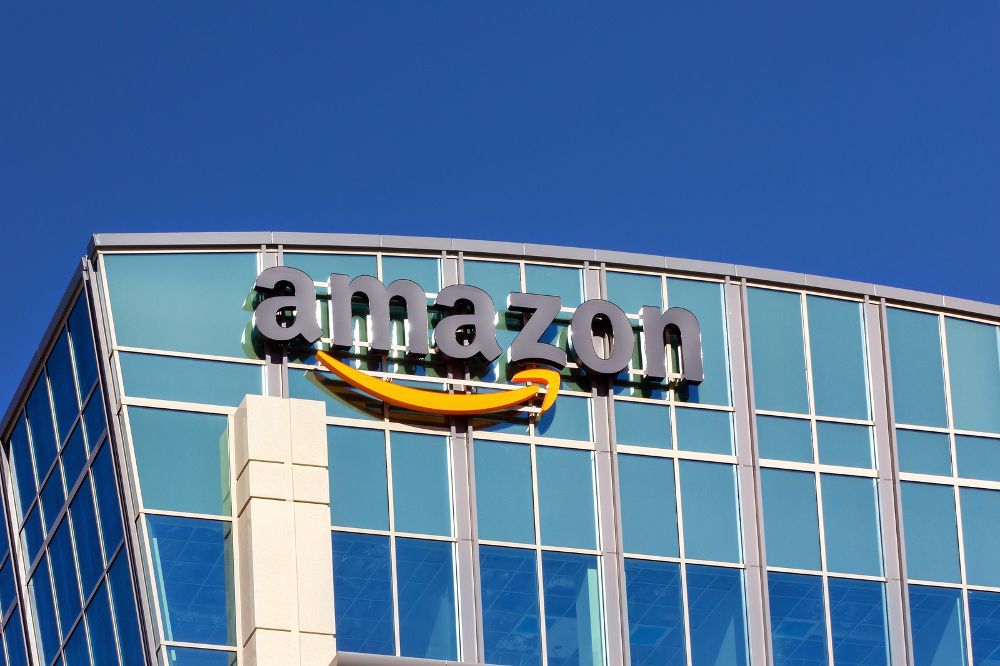Consumer behavior has changed drastically throughout these past few months amid the COVID-19 pandemic. The most dramatic and obvious change has been in online consumerism, which has increased for all kinds of products, from the most basic necessities to the latest streaming platform subscriptions. As the world continues to grapple with the impact of the ongoing global pandemic, this new reality has fostered the growth of a trend that has now become more prevalent across the world: online consumerism.
As personal and face-to-face services have declined in favor of digital user engagement, online purchases have grown exponentially — contributing to the growth of one company in particular: Amazon, a tech giant that has already altered the way countries engage with global markets.
Amazon’s model perfectly aligns with the conditions set by the pandemic. As an e-commerce corporation, Amazon has managed to dominate industries ranging from electronics and books to movies and video games — and recently, groceries. Today, Amazon boasts a 38% share of the e-commerce market but only retains a 5% share of total retail. However, with the pandemic and a growing number of consumers who are reluctant to commute to stores, it is predicted that company revenue in 2023 will be at $88 billion — double what it is now in 2020.
As a primarily data-driven company that has relied heavily on a digital shopping base and the extensive transportation of its products, Amazon’s success has only been accelerated by a pandemic that has forced millions of individuals to rely on e-commerce as an expedient and trustworthy method of purchasing products.
Additionally, if we take a magnifying glass to Amazon’s business model, we can further understand how this company thrives amid the pandemic. The company is built as a conglomerate of separate independent units. Each unit makes its own decisions and has enough latitude to operate without the need for a rigid central base. Although Jeff Bezos, Amazon’s CEO, makes executive decisions, the company’s decentralized structure allows units to conduct their own operations and achieve success independently.
To the outsider, it may seem that this company would face difficulty functioning at such a transnational level. However, Bezos provided the business units with three key principles to operate under: long-term management, intense innovation and a specified focus on customer satisfaction. Amazon uses these principles to ensure its employees integrate customer approval as the number one priority — a key standout from other e-commerce competitors. Additionally, Amazon’s lower costs help drive user traffic, which attracts more independent sellers and further contributes to the company’s growing revenue. As more revenue is generated with output increasing on a growing scale of production, costs decrease over time. This leads to a downward push on the prices of products and services, which attracts more customers and propels Amazon’s optimization of business and customer satisfaction.
However, the company must continuously innovate in order to further attract customers. Technological innovations, such as the Alexa artificial intelligence assistant and the Kindle, as well as lower membership subscription costs, have driven Amazon to the top of the e-commerce market. Even when these innovations don’t succeed, they serve as valuable lessons that often benefit the company in the long term. For example, the failed Amazon Fire Phone Product ultimately paved the way for Amazon Echo, one of Amazon’s most successful and popular products.
Additionally, an area of Amazon’s success to note is the company’s global expansion strategy. Amazon has just built a new office in Hyderabad, India, a region that is cleverly nicknamed Asia’s Silicon Valley. This office will serve as the base of operations in India, a country with the world’s fastest-growing pool of internet users. Aiming to take advantage of the rich software technology mecca in Hyderabad, Amazon has entered this gigantic market on the front line of this developing country’s flourishing technology sector. However, there have been several setbacks created by Indian officials and local politicians, including an antitrust lawsuit charged by Indian trade regulators. Nevertheless, after four years of planning and negotiation, Amazon’s new office has finally come to life.
Despite concerns of India’s attachment to foreign investment, Prime Minister Narendra Modi has worked to increase the attractiveness of India as a lucrative place for business, allowing Bezos to invest $1 billion in small and medium-sized businesses. In fact, many Indian businesses are collaborating with major e-commerce companies such as Amazon and Flipkart, which is India’s largest online retailer. With the devastating effects of the ongoing pandemic, e-commerce has become the only option for many small and medium-sized businesses.
However, in a comparative approach to the e-commerce boom, the European Union, and countries like Sweden, may not be able to successfully adopt this model of lowering costs and prices. Though Amazon plans to launch its Swedish website within a year, Sweden’s strict worker protection laws present a significant challenge for the tech giant. Sweden possesses an attractive market for internet retailers such as Amazon, as it lacks heavy competition in the e-commerce sector. And, like India, Sweden’s local businesses must adapt to incorporate internet retailing because of the ongoing pandemic. Thus, the current socially-distanced climate could serve to facilitate the rise of e-commerce in Sweden and further cement Amazon’s entrance into the Swedish marketplace.
But, as a country, Sweden has a strategic focus on sustainability and has strong labor unions, which both pose a challenge because of Amazon’s rap for its controversial anti-union work environment and culture. Therefore, if Amazon decides to fully commit, it has to successfully negotiate a compromise that conforms with Sweden’s workplace regulations and political culture.
Amazon’s global strategy does not flourish everywhere. Amazon has suffered from the curse of quality control as European consumer rights groups have criticized the tech giant for selling illegal items and not providing enough information about sellers. Additionally, Amazon is already in trouble with EU officials as the company faces antitrust charges for abusing its growing control over domestic markets to drive out smaller companies or rivals. Even though Amazon, along with other tech giants like Google and Apple, promises to work with the EU’s lawmakers, their lobbying efforts have fallen short. European officials are currently drafting new regulations that would prevent preferential treatment for Amazon products over European ones in an attempt to stem the anti-competitive agenda of these tech and e-commerce corporations.
While Amazon has faced incredible growth and expanded into several new countries, its global engagement model is not a path to victory void of opposition. The e-commerce giant will have to transform the very essence of its anti-union work culture and learn how to control its own growth before it completely overshadows domestic industries resulting in strict governmental regulations. The future of Amazon rests in the hands of the company’s ability to amend its business practices, as well as governments’ tech reform and antitrust policies.
Amazon continues to utilize its innovation and expansion agenda as its main tool to maintain relevancy and acquire power. Meanwhile, other companies struggling in the face of COVID-19 must develop their own unique strategies to prevent their services from being rendered obsolete by this new reality. While it is obvious that tech companies have benefitted from the pandemic, it is not clear whether this economic growth will continue after the pandemic ends. In particular, the fate of video chat and messaging companies might not fare well when human interaction resumes, especially in the education and business sectors. Only time will tell once the situation improves, restrictions end, and the global community gradually reverts back to their pre-pandemic lifestyles.









